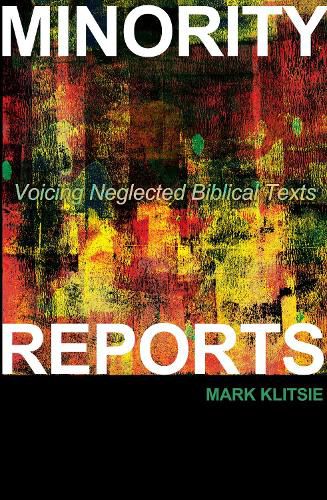Readings Newsletter
Become a Readings Member to make your shopping experience even easier.
Sign in or sign up for free!
You’re not far away from qualifying for FREE standard shipping within Australia
You’ve qualified for FREE standard shipping within Australia
The cart is loading…






This title is printed to order. This book may have been self-published. If so, we cannot guarantee the quality of the content. In the main most books will have gone through the editing process however some may not. We therefore suggest that you be aware of this before ordering this book. If in doubt check either the author or publisher’s details as we are unable to accept any returns unless they are faulty. Please contact us if you have any questions.
The stuff that comes after modernism isn’t all bad. Postmodernism, not needing everything to be buttoned up, can leave things dangling; it can pay attention to the obscure, marginal, and particular. The postmodern dynamic invites one to revisit biblical texts that do not fit into tidy, cherished theological constructs: I call these texts the minority reports. Popular theology infers that God is just pretending when he changes his mind or gets frustrated, saddened, and affected by humans–this understanding is guided by concepts of God’s omni-attributes. But these wise and well-intentioned concepts fail to portray a God who will not be domesticated. Certain biblical narratives trace YHWH’s hiddenness, suffering, changeability, and hostility–this awkward shadow side of YHWH is sometimes selectively overlooked. The fear of God is gone. Instead we have the ever-tolerant, universal God who is in danger of evaporating into spirit, light, and love. As a theologian I use Hebrew block logic: competing truths in the Bible are kept intact; synthesis isn’t necessarily sought. God chooses us and we choose God; God is self-sufficient, all-powerful, and all-knowing, needing no creature. Yet he chooses to limit his omni-ness in the human arena and makes himself vulnerable to humans. He hyphenates his name with Abraham, Isaac, Jacob–and the church–at a risk.
$9.00 standard shipping within Australia
FREE standard shipping within Australia for orders over $100.00
Express & International shipping calculated at checkout
This title is printed to order. This book may have been self-published. If so, we cannot guarantee the quality of the content. In the main most books will have gone through the editing process however some may not. We therefore suggest that you be aware of this before ordering this book. If in doubt check either the author or publisher’s details as we are unable to accept any returns unless they are faulty. Please contact us if you have any questions.
The stuff that comes after modernism isn’t all bad. Postmodernism, not needing everything to be buttoned up, can leave things dangling; it can pay attention to the obscure, marginal, and particular. The postmodern dynamic invites one to revisit biblical texts that do not fit into tidy, cherished theological constructs: I call these texts the minority reports. Popular theology infers that God is just pretending when he changes his mind or gets frustrated, saddened, and affected by humans–this understanding is guided by concepts of God’s omni-attributes. But these wise and well-intentioned concepts fail to portray a God who will not be domesticated. Certain biblical narratives trace YHWH’s hiddenness, suffering, changeability, and hostility–this awkward shadow side of YHWH is sometimes selectively overlooked. The fear of God is gone. Instead we have the ever-tolerant, universal God who is in danger of evaporating into spirit, light, and love. As a theologian I use Hebrew block logic: competing truths in the Bible are kept intact; synthesis isn’t necessarily sought. God chooses us and we choose God; God is self-sufficient, all-powerful, and all-knowing, needing no creature. Yet he chooses to limit his omni-ness in the human arena and makes himself vulnerable to humans. He hyphenates his name with Abraham, Isaac, Jacob–and the church–at a risk.